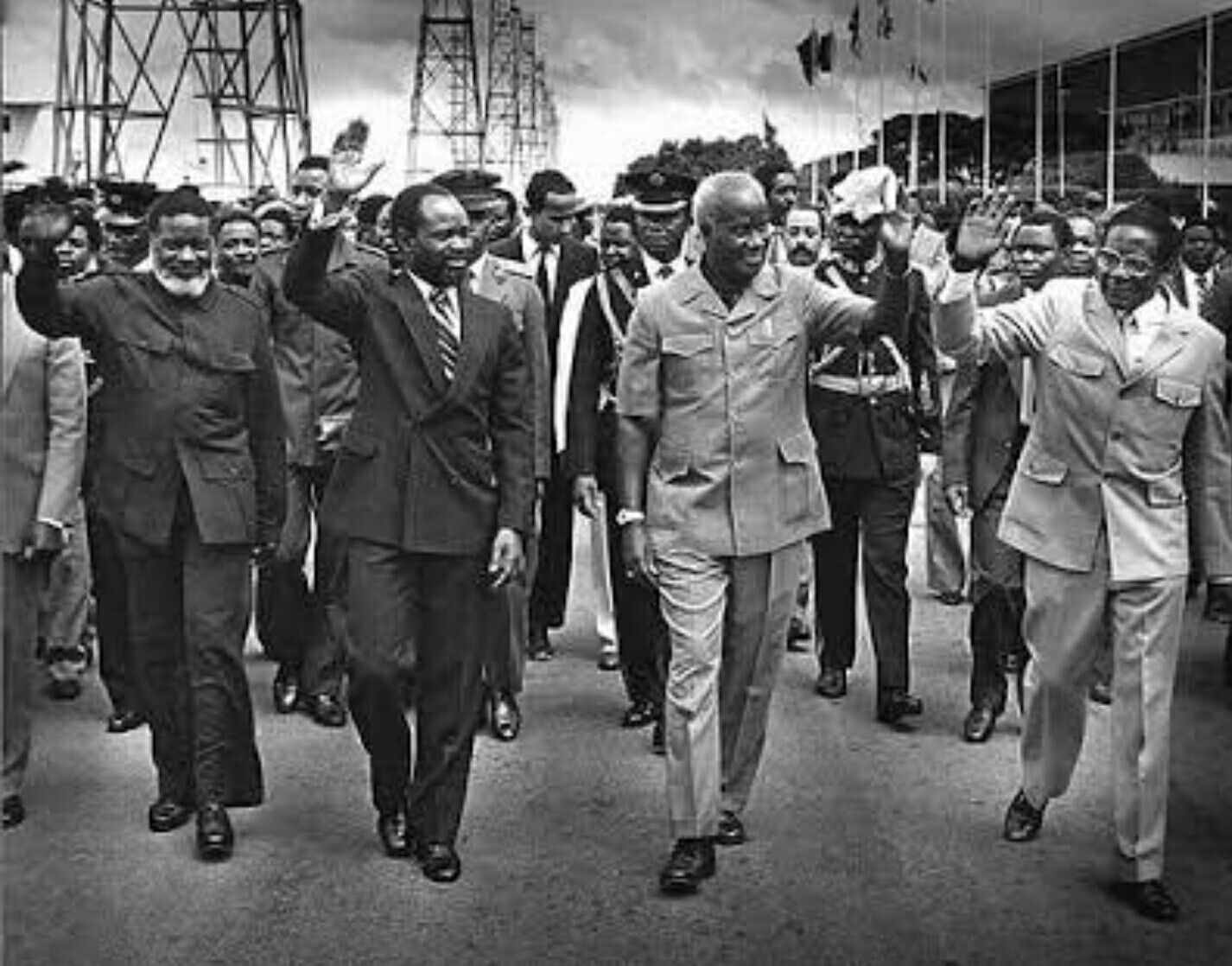Mr. Robert Mugabe whose death was announced earlier today represents something that few of his generation in African politics never came to attain. He was never conquered. He outsmarted his traducers till the end. Even when it came to a putsch, it was not like Al Bashir of Sudan being taken to the jail house. Mugabe never lost.
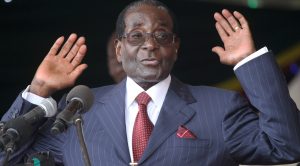
Bye!
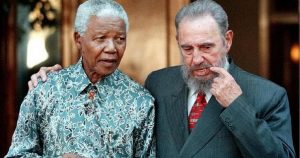
The masters in the game
He defeated his traducers in war, they could not succeed in stopping him from assuming power in post independence Zimbabwe and he outsmarted them in the power game while on the throne. They could not eliminate him either through a coup or through demonizing. In fact, demonizing worked in his favour.
They set him up against his own people by making him adopt SAP. ESAP – as it was called in Zimbabwe – successfully turned the beneficiaries of his free education against him because by the time the beneficiaries were graduating, ESAP had made jobs unavailable. It was the frustrated products of his free education who became the foot soldiers of the MDC opposition. So, Mugabe then came up with the idea of falling back on war veterans who were not really veterans since many of them were only born after independence. But they served his purpose of a populist response to an international strategy of tightening the noose. Resorting to violent land seizure was thus imposed on him.
For that, they demonized him, sweeping under the carpet his great concessions to inclusivity and pluralism at independence. For instance, he appointed a member of the white minority as head of intelligence, another one as head of agriculture and one other top position at independence in 1980.
All these gestures were de-emphasised. The only stories of Mugabe were those of an African tyrant who had led a prosperous African country left by colonialists down the hill and was abusing human rights. Or they would say he was a practitioner of cronyism when he was actually practicing positive discrimination so that a black bourgeoisie with competitiveness could emerge. This has since become a component of development politics across Southern Africa, testifying to Mugabe’s originality. But even in this, he still defeated his traducers. He beat them in the media war that followed. The relative intellectual autonomy of the Western journalist made Christiane Amanpour interview Mugabe among other world leaders in 2016. He used the opportunity to tell his story in the most astute manner possible. It was uhmmm all over the world.
He was a great guy, with his own weaknesses as an individual but he beat his opponents in their own games and he is thus about the only one who was never subdued. The only other exception was Julius Nyerere of Tanzania. Otherwise, Kwame Nkrumah of Ghana and other members of that generation were either overthrown and replaced with obsequious military officers or framed as this or that. Mandela in South Africa was the other global success story but Mandela could not have even been allowed to come to power if the USSR had not collapsed. After the collapse, the overlords of global hegemony no longer felt threatened by a likely or actually Socialist leaning African leader who was certain to link up with the Moscow that was feared. In the case of Mugabe, he fought to victory even in the dead of the Cold War, forced the colonial masters to the conference table and then gained independence almost on his own terms.
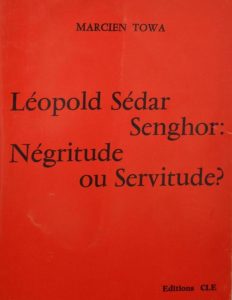
You may criticise Negritude but what have African leaders of today offered other than apologia for IMF and World Bank policies?
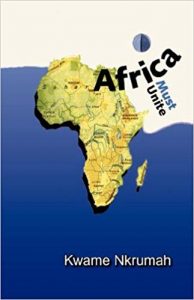 He was in every inch a member of that generation. All members of that generation were educated, politically and even in the certificate sense of it. They had very clear development strategy; did not steal their people blind; foresaw and responded to the problem of postcolonial diversity instead of ignoring it. For instance, quite a number of them married across the continent as a matter of political cum ideological statement. Above all, they worried about the African/black identity in the world, especially the crisis of cultural misrepresentation and the complicity of that historical trend in the crisis of the African self, that being the fulcrum of every other crises – running a government, building the state, accomplishing development and stabilising a polity. And so, many of them wrote literary, philosophical and political treatises which the succeeding African generations are not even in a position to read because they are too stressed to. So, postcolonial theory, for instance, thrives more in the Western world than in many parts of Africa. In several African universities, postcolonial theory is not even taught. In Nigeria, for instance, outside the Department of English and Literary Studies, it is not common to see a course unit on postcolonialism or Imaginative Geographies. It is still strange in most Department of Political Science in Nigerian universities even as Nigeria is supposed to lead.
He was in every inch a member of that generation. All members of that generation were educated, politically and even in the certificate sense of it. They had very clear development strategy; did not steal their people blind; foresaw and responded to the problem of postcolonial diversity instead of ignoring it. For instance, quite a number of them married across the continent as a matter of political cum ideological statement. Above all, they worried about the African/black identity in the world, especially the crisis of cultural misrepresentation and the complicity of that historical trend in the crisis of the African self, that being the fulcrum of every other crises – running a government, building the state, accomplishing development and stabilising a polity. And so, many of them wrote literary, philosophical and political treatises which the succeeding African generations are not even in a position to read because they are too stressed to. So, postcolonial theory, for instance, thrives more in the Western world than in many parts of Africa. In several African universities, postcolonial theory is not even taught. In Nigeria, for instance, outside the Department of English and Literary Studies, it is not common to see a course unit on postcolonialism or Imaginative Geographies. It is still strange in most Department of Political Science in Nigerian universities even as Nigeria is supposed to lead.
Of course, he left a gap in his politics which became his undoing – the Lancaster House clause which made land redistribution conditional on a 10 year moratorium and the “willing seller, willing buyer” rulebook. Whether he could have pressed his advantage at that time and environment is a different issue! He certainly could have insisted but he also had to think about Namibia’s independence. It would have come but at a greater cost and much, much later if Mugabe and his fellow patriots in ZANU took a hardline, showing the departing colonialists how the typical postcolonial elite in Southern Africa were going to conduct business with independence. To that extent, Mugabe and Zimbabwe made the most sacrifice for Namibia’s independence.
Perhaps, no one ever wins all rounds. He must have died with few or even no regrets, given the circumstances throughout his reign. He is the exit of the ultimate generational signifier.
May his spirit never rest in peace but continue the struggle over there against all those consciously or unconsciously scheming against a continent.

